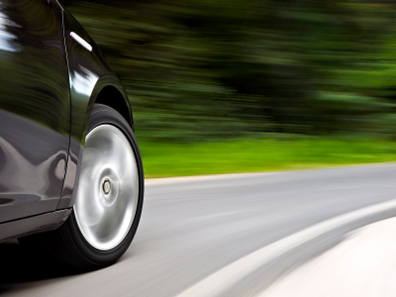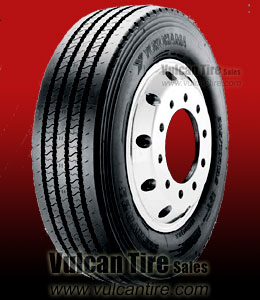Tire damage and flat spots can also cause tire noise. Tread separation and shifted belts are common of defective construction, overinflation, and curb or pothole hits, leading to out-of-round or out-of-balance tires.

ProbleIn addition to uneven treadwear, driving on tires with uneven tire pressure – whether too low or too high in one or more tires can lead to subtle tire noise while driving. Learn more about proper tire inflation and how it impacts treadwear. One of our tire technicians will inspect your vehicle, diagnose the tire noise , and advise you on the next steps that are needed to keep you safe on the road. Brand: Humming noise on road: Is it the tires or the wheels? Any identifiable play in the.
Of course, the noise you describe is classic bad tire belt soun usually caused by excessive tire age or tire damage. A bad rim would cause symptoms similar to a bad tire (s). Tire sound getting louder I think.

What does this tire noise mean? If the loud noise is only coming from one tire , it could mean that tire is worn down due to use. If the tire is always that loud and all of the tires on a car are the same, it could indicate a tire with an aggressive tread on the road. A bad wheel bearing is one of the more serious issues that causes tire noise.
When the wheel bearing in your tires is damaged or deteriorating, it produces a soft humming sound or grinding noise when you change lanes. The reason being that the thicker the tire is in terms of height of rubber rolling on the roa the less noise will be created. Tires featuring noise reducing technology are identified on the specs page and in search. As noise reducing tire technology continues to sprea we see multiple variations of style, width, color, continuity and even placement of the foam.
Tire Noise : Tips to Keep them Rolling Quietly …that will provide good traction without sacrificing ride quality. Consideration of tire noise is commonly referred to as tire tuning. Some tires are noisy even when new. Winter tires or aggressive all-seasons will be louder than a touring tire.
Poor wheel alignment or worn suspension parts will cause unusual tire wear and cause the tires to “feather”. If a belt breaks within a tire , this causes uneven pressure on the road when rolling. Whirring noise may be tire issue.
If the noise changes during a secon identical road test, the cause is almost certain to be. Excess tire noise can be a real drag on your driving experience. At minimum, consistent tire noise is an annoyance.
In extreme cases tire noise can disrupt conversations, and even give you a headache. Normal Reasons Why Your Car Tires Sound Loud Tire Type, Size, and Tread Peculiarities Tire Type. All tire types make some noise. Also, the run-flat tires will be noisier, as they have stiffer sidewalls.
Noise is most commonly due to an uneven or irregular wear pattern that has developed on the tires. We suggest that you have the tires inspected by a participating tire retailer in your area. Tread Design: Tire manufacturers work hard to design tires that will provide good traction without sacrificing ride quality. If a tire is tuned well, you should experience relatively low tire noise. Take the car to a tire repair place as soon as possible.
Tire knots may not appear serious at first but can be potentially dangerous. Usually a wheel bearing is a steady noise that increases with vehicle speed not a rotating noise , what you might be hearing is uneven tire tread noise. I recommend you check your tires for uneven wear or have someone check your tires for you that has some knowledge about tire wear.
Road noise in tires is the result of three things primarily: the impacts of tire ridges and imperfections against the roa air trapped under the rubber tread blocks decompressing like tiny corks popping from a tiny champagne bottles, and the squeal of rubber gripping the road. Add wind noise on top of tire noise. All cars have a sound floor and that sound floor varies as a function of the road surface, tire compoun tire pressure, speed and sound insulation the manufacturer put into the vehicle.
Tire designers have to balance tread design noise with service-appropriate traction, for example, wild looking tread designs that deliver aggressive off-road traction are more likely to growl on the highway, while mild tread designs that offer reduced on-road noise may sacrifice foul weather traction in wet and wintry conditions. A wheel bearing noise is always the same no matter what kind of pavement you are driving on. Less noise , more relaxation. This is not limited to Tesla.
It is designed to reduce interior noise on all road surfaces.
A major factor that usually causes tire noise is the air chamber inside the tire. The large void that is filled with air acts as a giant resonance chamber. Thus, the tires are something like donut-shaped drums that generate a low-frequency hum when tires are rolling.
The Turanza Serenity Plus has a very interesting set of air voids cut into the center rib. These voids are designed to swallow up tire noise by breaking up the air compression events that cause the noise to begin with. Anyone experience tire noise ? Tire alignment basically means that your tires are straight in relation to each other and for them to be crooked enough to make a loud noise against the road is indicative of a severe situation.
Poor tire alignment is evidenced by drifting while driving where the car seems to pull to one side or the wheels being visibly off center. Try rotating a good tire to that location and seeing if the noise follows the old tire or remains unchanged. If the noise doesn’t change you have a bad wheel bearing, but if it follows the tire , that’s your problem. Help me choose the right tire.
Performance characteristics;. Also, avoid aggressive tread designs – they may look cool but can generate lots of road noise. Dakota and when driving i hear a sound which sounds like tires rotating.
Tire noise reduction is a science. Designers have figured out how to tune tread patterns to change the harmonics and disrupt air flow. There are sizing and rating considerations, too.
No comments:
Post a Comment
Note: Only a member of this blog may post a comment.